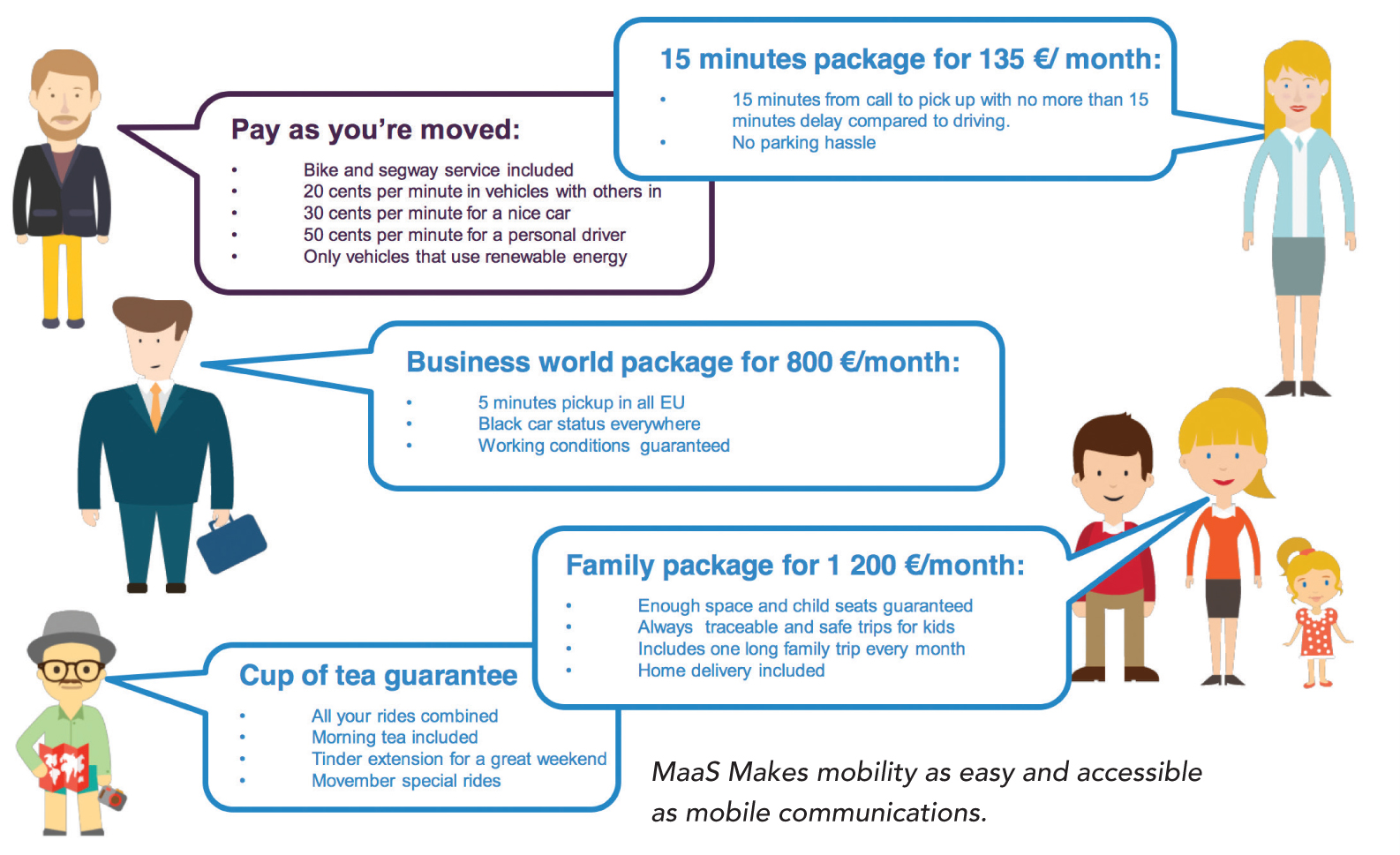
Having opened our MaaS Market conference, Anne Berner took time out to talk to ITS International about the role of government, MaaS and road user charging.
Anne Berner, Finland’s minister of transport and communications, does not fit the normal political mould. She is not a career politician but a business executive who became a member of parliament in 2015 and has said from the outset that she will only serve one term. Without concerns about being re-elected and a clear view of the future of transport, Berner can concentrate on what needs to be done - tackling some of the more contentious and intransigent subjects.
Her name is best known for two major initiatives: the reform of Finland’s Transport Code and attempting to introduce a nationwide road user charging system for state roads (and other state-owned transport infrastructure).
In Finland, the government’s stated intention is for less, but smarter, regulation which allow space for innovation and technological developments and provide a ‘level playing field’ for all players. So in revising the country’s Transport Code, the aim is to deregulate existing transport while laying the foundations for future transport models such as Mobility as a Service (MaaS) and for the digitalisation of the entire sector.
She starts with, perhaps, the biggest problem of all, saying: “We need to have the leadership to come out of silos. Not only of transport modes and industries but also when it comes to government – and that is far more difficult believe me.
“No longer are we doing transport policy and communications policy. We are doing policy for networks, for services, for data management and data handling to bring different fields together. And that has helped us understand what MaaS is all about and the kind of legislation and regulation it needs.
“We have to look at the transport system as one entity - with no borders and the ability to share data on payments, tickets and location.
“So we decided not to reform the taxi law, the laws for public transport and those for the transport of goods on roads and other different pieces of legislation. We decided to remove those old laws and create a new Transport Code that incorporates all transport modes into one piece of legislation, to be technology neutral and to create the same level playing field for different transport modes. We also decided it needed to have certain criteria: it must be user-centric, based on connectivity and not capacity, and has to be market driven.
The Finnish government is taking a particularly strong stance on data sharing, stating that only companies offering open ticketing application programming interfaces (APIs) can work within the public transport system. “Any authority spending taxpayer money cannot buy services from suppliers not working with accessible data - we need the space for new operators, the possibilities arising from interoperability between ticketing and payment systems throughout our country.”
Initially, the revision of the Transport Code is focussed on roads as Berner says the legislative environment for taxis and buses is far behind that for rail, air and sea. “So we focus in the first part on creating a technology neutral system which is transport mode neutral and allows the combination of people or persons, mail and goods – on one ticket, one user interface.”
In doing so, some 180 paragraphs of regulations have been halved. “Where we do regulate strictly, the focus is on safety and consumer protection but we don’t regulate any technologies to allow new offerings, such as MaaS, to become a reality.”
Rail, air and sea transport will be in the next phase of legislation but as these are complicated by an international dimension, Berner says making ticketing systems work together will be even more difficult because of the need to share personal data which raises privacy concerns.
“So we are looking again with the restraint of data protection and privacy and ask: ‘How do we create systems that are customer-centric and provide a complete travel chain’. Here we see potential in using My Data model where we hope that giving the passenger the power to decide on the right to share and reuse their personal data and looking at the revised directive on payment services to find new solutions to deliver that.”
Even in low population density Finland, environmental considerations are shaping future regulation as it is committed to halving transport emissions by 2030 - and most of those emissions come from private cars. “So we have to create services that are competitive to owing your owning car in terms of flexibility, feasibility and mobility which make it easy to let go at least of your second car.”
Autonomous vehicles figure large in Berner’s thinking. “We think Finland should be among the first countries to have an enabled automated driverless system within all modes and we are working on every piece of legislation to try to eliminate any obstacles.”
In the wider context she says future mobility is not just about transport but also about communications, media, store locations, trade and services with everything becoming integrated within Mobility as a Service. This provides enormous new business potential for all those that are within these fields.
The shape of this future mobility will depend on the balance between interfering through legislation and allowing the market to fulfil its potential. Berner has a guiding philosophy: “Look as far ahead as possible and remember that government terms are short and policy making is difficult, so we have to understand what decisions we need to make today to achieve targets for 2030.
“When you look at Finland we are full of transport problems. We are a nation of 5.5million people with 3million cars and 450,000km of roads to maintain. EU targets mean that by 2030 Finland has to reduce emissions by 39% from the non-emission trading sector compared to the 2005 level. Emissions from domestic transport amounted to about 20% of all emissions and about 40% of the emissions in the non-emission trading sector. So we have to find solutions.
“If we only look at things at the city level we will not achieve our overall goals. I think the only way we can maintain a nation of our physical and geographical size and very spread out, is to create on-demand services. In fact digitalisation, technology developments and on-demand transport solutions are the only way we can survive and provide our people with nationwide public transport systems also in sparsely populated areas.
“So we need to create an interesting enough environment and strong enough demand for businesses to invest in order to provide services that will change behaviours, transport modes that cross borders and data systems that can operate across borders. Coordination between governments is vital to create those markets.”
One of her domestic initiatives, road user charging, failed to get parliamentary approval but Berner is not demoralised or defeated – quite the contrary, she is very upbeat, saying: “Our study was published and in four days we had to drop it because we could not get it through. But the big picture is still correct.
“Most societies are enormously dependant on income from transportation. The philosophical move from taxation - where there is a charge with no specific associated service beyond the safety net of society - to user pays where the individual pays for a certain service, is a big shift in society structure. Even if we know that taxation from transportation is going down and what is ahead, we are still at the peak [of fuel tax revenues]. So we are trying to change the system at the peak, and very few business leaders succeed in doing that - and even fewer politicians.
“We can’t give up [on road user charging] and we have gained an enormous advantage because everybody in Finland is now aware of four problems: the proportion of emissions from transport and the cuts we are required to make, that we can no longer fund maintenance of the roads and so we are creating a debt for future generations at the rate of €100 million per year. They also know that in a context of a sector worth €30bn a year in Finland alone, we have only invested €1.5bn per year in state-owned transport infrastructure. This means we no longer have the capacity to invest or pay for new logistical outlets and we can no longer enhance our competitive advantage in logistics for our industries. And finally, the Finnish people are now well aware that intelligence is needed in transport systems and that data is part of transport – a transport mode in a certain sense.
“So even though we have not managed to bring in the user-pay model, we have been able to introduce, and with an element of shock, the real problems. We now have to find another solution and instead of having the ministry prepare studies, we have the parliament drafting measures to be taken. We have gone to the government and opposition parties and said ‘you didn’t approve of user-pay fees on roads and rail and fairways but the four questions are still there and we have to find solutions’.
“So we have joined together as a group and given ourselves one year to find solutions. The challenge is that if we are not allowed to change taxation systems on vehicles, how will we incentivise the reduction of emissions. If not user-pay charges on infrastructure how will we pay for investment, because tax cannot go up any more. And if we want to be among the first to automated driving, how do we make sure our intelligence in telecommunications or on the roads is sufficient.”
According to Berner, many people now are saying, ‘we should have had the courage to investigate more and to study this’, and ‘maybe she was right and there was something in what she said’. So the hope is that, step-by-step, the parties will come closer to where they need to be.
Parking is another area where legislators, national and local, play a significant role and there is an increasing body of evidence showing that the provision of parking encourages commuting by car. Currently in Finland every new apartment must have 1.5 parking spaces - so will that change?
“The role of government is in finding intelligent ways in combining the usage of land and the transport system. It is likely we will see less provision for parking and more for shared use but we are a sparsely inhabited country so the car will always be important.
“It is much more important to move ahead with incentives than with punishments. Our incentives have to be that good and we have to be so good at Mobility as a Service and at creating a service level that it will convince people that they do not need to own or use a car.
“A trend to fewer cars will ease the need for parking provision, but in a country like Finland we also have to incentivise people to live outside the cities. So before we can say ‘no more parking spaces’, we have to make sure there is a functioning last mile solution - and we are not there yet.”
The first/last mile conundrum returns the conversation to autonomous or driverless vehicles and Berner echoes the UK’s House of Lords’ recent findings, saying: “We do not yet fully understand the consequences of autonomous cars – we are still missing the next level of ethical, moral and liability issues.
“If you look back 200 or 300 years you had the church saying ‘this is not ethical and will be bad for humans, or good for humans’. But we no longer have that forum or one which is not the industry or politicians. There needs to be something and sometimes I think the World Economic Forum could be the place for that type of debate.
“Completely autonomous vehicles can benefit society but society will only benefit from fully driverless [Level 5] technology in public transport where you can move 10 to 20 people on-demand in one autonomous vehicle, so we have to go for the highest level of ambition.”
While acknowledging the increase in road safety, she says: “If you have autonomous cars moving with only one person inside, then society only has a marginal benefit. Otherwise we only have people enjoying the luxury of their cars and more cars on the road causing more congestion and society does not benefit.”
She ends, almost where she started by reasserting: “We must provide the space for technical development and then fix the problems that arise. If we solve them before they are really on the radar, then we will prevent development from happening."









